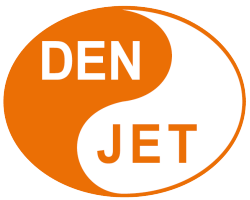DEN-JET Marine
DEN-JET’s long experience in the high pressure industry has enabled us to create a range of water blasters and accessories, suitable for numerous applications in the industrial and marine industries. DEN-JET supplies complete packages to end-users and distributors, as well as bare shaft pumps and parts to OEM’s. Our main goal is to produce quality products at a competitive price level.
Den-Jet Marine has as a manufacture taken this challenge by developing a range of water blasters for On Board Maintenance to assist in fighting corrosion. The method used has taken into consideration that much larger surface areas have to be maintained thus minimizing the time factor. It has to be simple to operate and simple to maintain. All our equipment is made for marine use – we are not an industrial player who ventured into the marine by accident – we started out as a marine supplier.
DEN-JET Marine Pte Ltd
101 Second Lok Yang Road, 628172 Singapore
Phone: +65 62 68 12 38
Email: denjetmarine@denjet.com
Webiste: www.denjet.com

